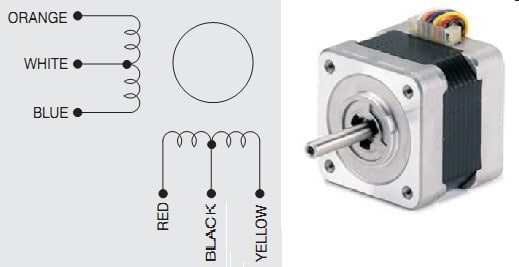This is a small comparison made between three types of motors: DC motors and stepper motors.

Let’s see what their cons and pros are:
- Stepper motors don’t require feedback to determine position. The microcontroller determines the position by sending pulses to stepper motor;
- When the load is too high to the stepper motor, then it may stall, and there is no way to report this to the microcontroller;
- DC motors with feedback can report stalls on high loads or other conditions;
- Stepper motor has no brushes – there is no EMI;
- Stepper motor may produce full torque – this enables them to hold the rotor in the desired position;
- DC motors deliver more torque at higher speeds than stepper motors;
- Stepper motors can produce low speed without loss of torque.
- Dc motors lose torque at low speed because of low current;
Let’s conclude this all. Systems with stepper motors and without feedback cannot determine what motor is really doing. Thus, stepper motors are usually used where loads are known (like floppy disk or printer).
If loads are known and determined, then some smart control can be applied – for smaller loads there can be smaller current applied in another hand for higher loads the current may be increased.

When the load isn’t determined, then there DC motor should be used. Sometimes DC motor with appropriate feedback encoder may give better results than stepper motors. Feedback allows easily adjusting supply current if DC motors speed or position is not correct.
What should be a good solution? The answer is to add feedback encoder to the stepper motor. The cost is higher, but you get benefits of both types of systems. But remember that stepper motors cannot reach high speeds as DC motors.






Interesting article. You make a good point about stepper motors not being able to reach the same speeds at DC motors, but I haven’t found myself needing that extra speed yet.